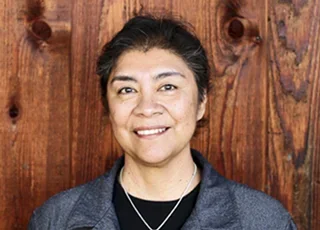Delia Saenz

Delia Saenz is a nationally-recognized expert in the area of understanding diversity in groups, and has been a leader in conversations about diversity and inclusion, women and people of color in STEM fields, and sustainability.
Biography
Saenz is the Advisor to the President for Institutional Inclusion, Equity, and Leadership Development and served as a visiting faculty member at Bennington in Spring 2017. Prior to Bennington, she was an associate professor in the Department of Psychology, and a research professor in the Hispanic Research Center, at Arizona State University (ASU). She received her doctorate in Social Psychology from Princeton University in 1987. Saenz has served administratively as vice provost for undergraduate education, and as vice provost for international and institutional inclusion at ASU. Her scholarly research focuses on diversity, tokenism, intergroup processes, inclusion, acculturation, and sustainability. This work, often cited for its innovation and contributions to the understanding of diversity in groups, has been funded by the National Institutes of Mental Health, the National Science Foundation, the Ford and WT Grant Foundations, the US Department of Energy, and the US Agency for International Development. Her recent work has centered on broadening the participation of women and people of color in STEM. She served as co-PI on Vocational Training and Education for Clean Energy (VOCTEC), a project focused on enhancing knowledge, awareness, and capacity-building in renewable energy technologies among developing nations.
Saenz served as director of diversity and inclusion on two multi-university engineering research centers, Quantum Energy & Sustainable Solar Technologies, and Center for Biomediated and Bioinspired Geotechnics. In this capacity, she engaged faculty, students, and staff in advancing a culture of inclusion. Beyond her contributions to scholarship and administration, Saenz has been recognized institutionally and nationally for outstanding teaching and mentoring of both undergraduate and graduate students.